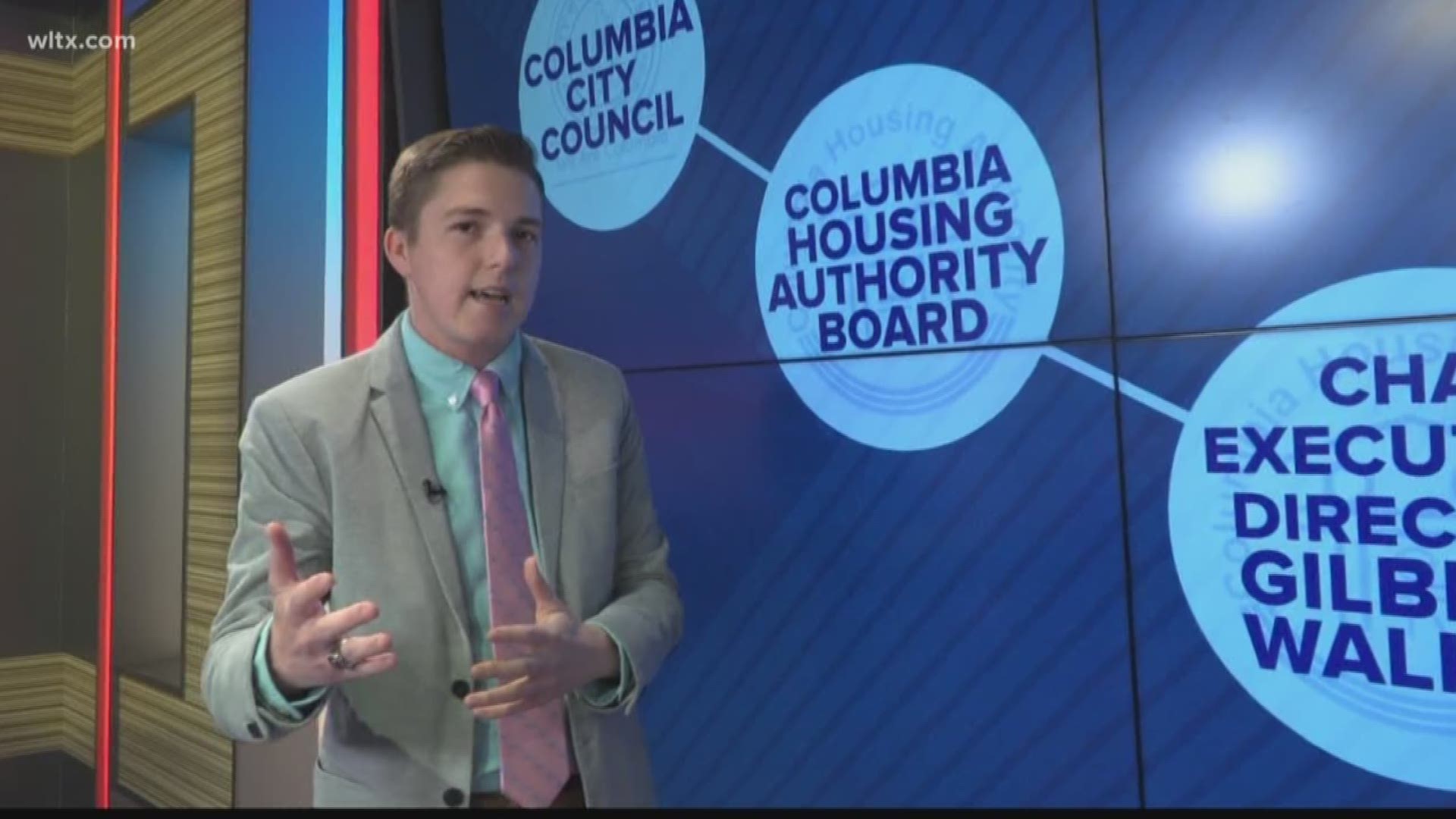COLUMBIA, S.C. — In recent weeks, there has been some question about the organizational structure of the Columbia Housing Authority (CHA) and how it operates in relation to the City of Columbia.
WLTX's Deep Dive team took a closer look into the Authority's organization and how it operates.
First, the Columbia City Council appoints commissioners to the Columbia Housing Authority Board.
This week, the board had seven commissioners before two of them resigned on Wednesday.
The CHA board expanded from five to seven members in 1976, according to Board bylaws.
Columbia leaders, including Mayor Steve Benjamin and City Manager Teresa Wilson, have said repeatedly that besides appointing commissioners, the city has no oversight.
"The Columbia Housing Authority maintains its own affairs, its own employees, has its own legal counsel. The City of Columbia and the Columbia Housing Authority are two separate and distinct legal entities," Mayor Benjamin said at a press conference this week.
"The Columbia Housing Authority is not governed by the City of Columbia," added Wilson.
Commissioners are appointed for five year terms.
The commissioners responsibilities include governance, policy, large projects, and other financial oversight, according to the bylaws and current commissioners.
The commissioners also have the power to hire an executive director. The current executive director is Gilbert Walker.
The executive director is, "Charged with the management of the housing projects of the Authority," the bylaws read.
"My job has been governance to understand the very complex legal requirements of federal funding, grants, what we're supposed to do when we encounter requests for many different things. But, it hasn't been the daily operations. That's a very distinctly different category and it's what our executive director and his staff are charged with," said now-resigned Commissioner Jennifer Rubin.
The board and executive director are required to meet regularly on the third Thursday of every month, according to the bylaws.
Like it says in the bylaws, Commissioner Rubin and Housing Authority attorney Bob Coble say Walker and his staff are responsible for day-to-day administrative tasks and management of the CHA's properties.
"Commissioners hire the executive director, but they don't manage the day-to-day affairs, they cannot tell employees what to do," said Coble.
"The executive director works for the Board of Commissioners," Coble added.
City leaders have said their oversight ends with appointments. Adding that besides occasionally contributing funds and partnering on projects, they no longer have control over CHA governance.
"Once commissioners are appointed, the City has no oversight of the Housing Authority, its board or its executive director," said Mayor Benjamin this week.
However, the CHA Board's own bylaws say that's not the case.
"For inefficiency, neglect of duty, or misconduct in office a commissioner of an authority may be removed by the council," the bylaws state.
The statute says commissioners must be given 10-days notice of charges before a hearing takes place.
The U.S. Department of Housing and Urban Development provides funding and federal policy, but does not appear to have any direct oversight besides local property inspections.
Lastly, the state of South Carolina also provides occasional funding. But, several state representatives have told WLTX in recent weeks they have no direct oversight of the CHA.
However, sources tell WLTX that Richland County senator Darrell Jackson is considering legislation that would allow city governments across the state, including Columbia's Mayor Steve Benjamin, to take over local housing authorities through a, so-far, unspecified process.
No such legislation has been filed at this time, according to the State House database.

